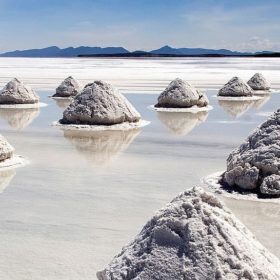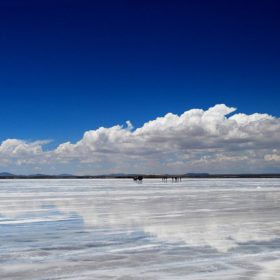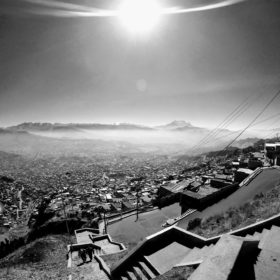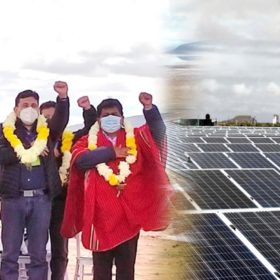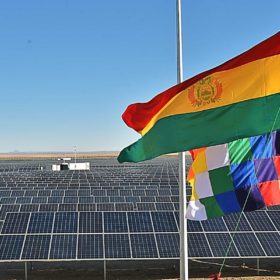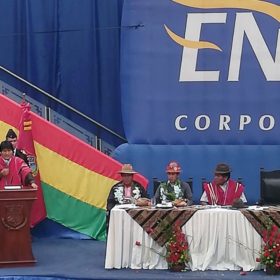Bolivia’s YLB signs lithium deals with Russian, Chinese companies
The agreements provide for the installation of carbonate industrial plants in the department of Potosí, which will receive royalties and investments of around $2 billion.
Bolivia picks companies from China, Italy, France, Australia for lithium projects
The Bolivian National Strategic Public Company for Lithium Deposits (YLB) says it has selected companies from China, Italy, France, and Australia to negotiate lithium exploitation projects and evaluate their mineral processing proposals.
Bolivian president ties coup attempt to nation’s lithium interests
Bolivian soldiers sparked controversy last week by questioning President Luis Arce, prompting allies of the ruling party, including former President Evo Morales, to describe the incident as a “self-coup.” However, Arce has blamed the the situation on entities interested in exploiting Bolivia’s lithium reserves.
Bolivia launches call for lithium extraction
Bolivia has launched a second international call, after a first attempt failed in 2019, to seek potential investors for its huge lithium resources.
Bolivia introduces net metering for rooftop PV
The new provisions came into force on March 24. Net metering tariffs will have to be established by the energy regulator.
Bolivia connects 50 MW second phase of Oruro PV project
Bolivian President Luis Arce this week inaugurated the second phase of the Oruru Photovoltaic Solar Plant. Located 3,700 meters above sea level, the plant is believed to be the world’s highest altitude PV installation.
Is fair lithium from Chile possible?
Batteries, and the raw materials that make them, are a frequent target of public criticism. The high water consumption required for lithium extraction is speeding up desertification around the salt lakes of Latin America’s “lithium triangle”, for example. The mining debate highlights general problems with the extraction of raw materials including copper, crude oil and lithium but international companies can still influence extraction methods – and there are plenty of different approaches.
Bolivia commissions 60 MW solar park
The Uyuni project will cover half of the electricity demand in the Potosí region, and is currently the largest PV installation in the Andean country. The project was realized thanks to an investment of US$62 million.
Bolivia hires ACI Systems for its first lithium factory
The German company was chosen among eight bidders through an expression of interest process. It will be responsible for the construction, assembly and commissioning of a lithium manufacturing facility. The Bolivian government expects an annual income of US$1 billion.
Spain’s TSK wins contract to build 50 MW solar plant in Bolivia
The Oruro solar plant was tendered by the Bolivian government in April 2016. The $54.7 million facility will be connected to the network of local state-owned utility, ENDE.
